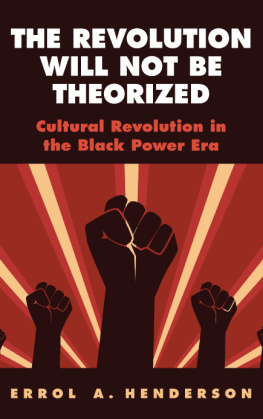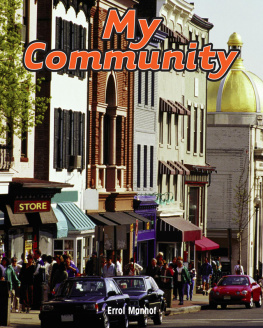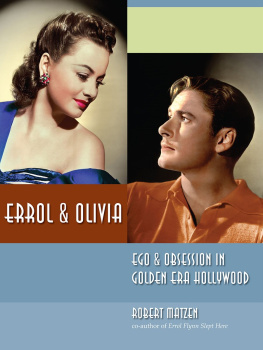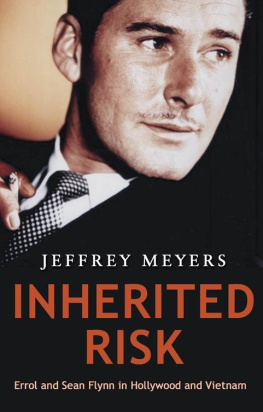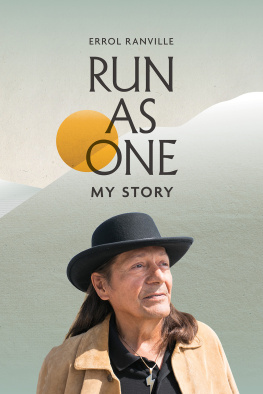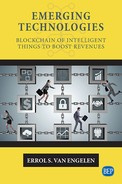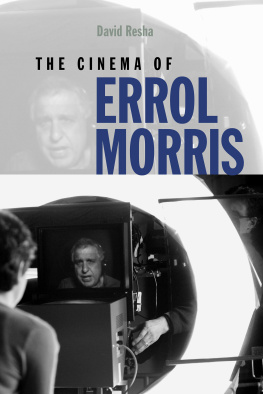Errol A. Henderson - The Revolution Will Not Be Theorized
Here you can read online Errol A. Henderson - The Revolution Will Not Be Theorized full text of the book (entire story) in english for free. Download pdf and epub, get meaning, cover and reviews about this ebook. year: 2019, publisher: State University of New York Press, genre: Politics. Description of the work, (preface) as well as reviews are available. Best literature library LitArk.com created for fans of good reading and offers a wide selection of genres:
Romance novel
Science fiction
Adventure
Detective
Science
History
Home and family
Prose
Art
Politics
Computer
Non-fiction
Religion
Business
Children
Humor
Choose a favorite category and find really read worthwhile books. Enjoy immersion in the world of imagination, feel the emotions of the characters or learn something new for yourself, make an fascinating discovery.
- Book:The Revolution Will Not Be Theorized
- Author:
- Publisher:State University of New York Press
- Genre:
- Year:2019
- Rating:3 / 5
- Favourites:Add to favourites
- Your mark:
- 60
- 1
- 2
- 3
- 4
- 5
The Revolution Will Not Be Theorized: summary, description and annotation
We offer to read an annotation, description, summary or preface (depends on what the author of the book "The Revolution Will Not Be Theorized" wrote himself). If you haven't found the necessary information about the book — write in the comments, we will try to find it.
The Revolution Will Not Be Theorized — read online for free the complete book (whole text) full work
Below is the text of the book, divided by pages. System saving the place of the last page read, allows you to conveniently read the book "The Revolution Will Not Be Theorized" online for free, without having to search again every time where you left off. Put a bookmark, and you can go to the page where you finished reading at any time.
Font size:
Interval:
Bookmark:

WILL NOT BE
THEORIZED
SUNY series in African American Studies
John R. Howard and Robert C. Smith, editors
WILL NOT BE
THEORIZED
Cultural Revolution in
the Black Power Era
ERROL A. HENDERSON

This book is freely available in an open access edition thanks to TOME (Toward an Open Monograph Ecosystem)a collaboration of the Association of American Universities, the Association of University Presses, and the Association of Research Librariesand the generous support of The Pennsylvania State University. Learn more at the TOME website, available at: openmonographs.org. DOI: 10.26209/eh19rwnbt
The text of this book is licensed under a Creative Commons Attribution-Non Commercial 4.0 International License (CC BY-NC 4.0), available at https://creativecommons.org/licenses/by-nc/4.0
Cover art: iStock by Getty Images.
Published by State University of New York Press, Albany
2019 State University of New York
All rights reserved
Printed in the United States of America
No part of this book may be used or reproduced in any manner whatsoever without written permission. No part of this book may be stored in a retrieval system or transmitted in any form or by any means including electronic, electrostatic, magnetic tape, mechanical, photocopying, recording, or otherwise without the prior permission in writing of the publisher.
For information, contact State University of New York Press, Albany, NY
www.sunypress.edu
Library of Congress Cataloging-in-Publication Data
Names: Henderson, Errol Anthony, author.
Title: The Revolution Will Not Be Theorized : Cultural Revolution in the Black Power Era / Errol A. Henderson.
Description: Albany : State University of New York Press, 2019. | Series: SUNY Series in African American Studies | Includes bibliographical references and index.
Identifiers: LCCN 2018040337 | ISBN 9781438475431 (hardcover : alk. paper) | ISBN 9781438475448 (ebook)
Subjects: LCSH: Black Panther PartyHistory20th century. | Black powerUnited StatesHistory20th century. | African American political activistsHistory20th century. | African AmericansPolitics and government20th century. | United StatesRace relationsHistory20th century.
Classification: LCC E185.615 .H3625 2019 | DDC 322.4/20973dc23
LC record available at https://lccn.loc.gov/2018040337
10 9 8 7 6 5 4 3 2 1
I appreciate the people and institutions that assisted in this project. This book would not have been possible without the encouragement, support and cooperation of many of the activists and intellectuals from the Black Power Movement that I discuss in these pagessome of whom have passed on; and, most importantly, Harold Cruse, whose work, more than any other from that era motivated this study. I want to thank Bishop Nkenge Abi, Muhammad Ahmad, Chris Alston, General Baker, Amiri Baraka, David Barber, Clementine Barfield, James Boggs, Grace Lee Boggs, Teferi Brent, Scott Brown, Cruz Caridad Bueno, Safiya Bukhari, Kathleen Cleaver, Sarah Fila-Bakabadio, Keith Gilyard, Tommy (Halifu) Jacquette, Rickey Hill, Reparations Ray Jenkins, Mack Jones, Wesley Kabaila, Anthony Kaye, Marian Kramer, Cicero Love, Chokwe Lumumba, Haki Madhubuti, Wilson Moses, Queen Mother Audley Moore, Akua Njeri, Imari Obadele, Robert Packer, Mrs. Rosa Parks, Geronimo Ji Jaga Pratt, Bishop Frank Reid, Cedric Robinson, Clovis (Jabulani) Semmes, Robert Smith, Robert Starks, James Taylor, Ronald Walters, Hanes Walton, Alvin Williamson, Andrew Zimmerman for their comments, suggestions, and/or discussions over the years about the substantive arguments and analyses in this work. Thanks for the encouragement and example of UNIA Division 407 members Ruth Smith, Leroy Jackson, and Arthur Thomas. Thanks also to Bishop Reid and the congregants of Bethel AME Church in Baltimore, Rev. Wendell Anthony and the congregants of Fellowship Chapel in Detroit, and the Liberation Film Series at Charles Wright Museum of African American History in Detroit for providing venues to present aspects of this work and inspiration to carry it out.
Parts of this work were presented at several conferences and symposia, including the 50th Anniversary of The Crisis of the Negro Intellectual at the University of San Francisco; the Civil Rights Conference at University of Tennessee-Martin; the Race, Roots & Resistance: Revisiting the Legacies of Black Power conference at the University of Illinois; the Transatlantic Roundtable on Religion and Race at Howard University; The Cost of Freedom, Debt and Slavery conference at Brooklyn College; the Millennium Conference at the London School of Economics; the Scholar Activism in the 21st Century conference at the British Library in London; the European Conference on African Studies at Universit Sorbonne Nouvelle in Paris; the National Conference of Black Political Scientists in Chicago; the National Council for Black Studies in San Diego; and the 80th Anniversary Malcolm X Commemoration conference in Harlem, New York. I appreciate the comments, critiques, and suggestions of participants at each of these programs.
Parts of also draw from The Revolution Will Not Be Theorised: The Howard Schools Challenge to White Supremacist IR Theory, Millennium 45, no. 3 (June 2017): pp. 492510. I acknowledge SAGE Publications for granting permission for their use.
Finally, Im grateful for the encouragement of family, friends, and colleagues over the more than a decade of writing this book. I am especially thankful to my son, Errol. I also hope the work is indicative of the potential of those of us who arose from poverty and were not among those for whom many viewed an academic career as an option; thus, I am grateful for my family and friends from the Brewster Douglass Housing Projects, Detroit, Michigan, especially my big sister, Patricia Delores. I dedicate this book to one of my former professors at the University of Michigan who challenged me to develop meaningful black social theory, which, given my often-strident critiques of some of his work at the time, would probably surprise him greatly to find that the result reflected in this book heavily draws on his own: Professor Harold Cruse.
Errol Anthony Henderson
University Park, Pennsylvania
This study critically examines some of the influential theories of black revolution in the United States devised by prominent black revolutionists and their organizations during the Black Power Movement (BPM) of the mid-1960s to mid-1970s through an engagement of their African American intellectual and activist precursors. Although their revolutionary theses informed and guided their programs, practices, and pronouncements, BPM revolutionists are typically acknowledged for their activism, but rarely for their acumen as revolutionary theorists. In fact, they put forth some of the most incisive, timely, and enduring theses of black radical change in the twentieth century; and influenced their own and subsequent generations seeking to transform U.S. society in fundamental ways. Although a wellspring of research has emerged on the BPMespecially in the last decade or so, much of it has been narrative/historical, providing detailed insights and discussions of individuals and organizations, rather than analytical, focusing on the revolutionists actual theories, especially as they were informed by their revolutionaryas opposed to reformistantecedents in the United States. Through its focus on the cultural aspects of black revolutionary theory, this study situates the theoretical contributions of BPM revolutionists in a broader historiography of African American revolutionary theory tied to arguments from the early postbellum era; to novel theses on black revolution from the interwar era from W. E. B. Du Bois, Alain Locke, Harry Haywood, and Claudia Jones; to prominent postwar theorists such as Harold Cruse, James and Grace Lee Boggs, and Audley Moore; and epitomized in the theses that would have the greatest influence on revolutionists of the BPM, those of Malcolm X. In the next section, I lay out the main argument of the book, followed by an outline of each of the subsequent chapters.
Font size:
Interval:
Bookmark:
Similar books «The Revolution Will Not Be Theorized»
Look at similar books to The Revolution Will Not Be Theorized. We have selected literature similar in name and meaning in the hope of providing readers with more options to find new, interesting, not yet read works.
Discussion, reviews of the book The Revolution Will Not Be Theorized and just readers' own opinions. Leave your comments, write what you think about the work, its meaning or the main characters. Specify what exactly you liked and what you didn't like, and why you think so.

